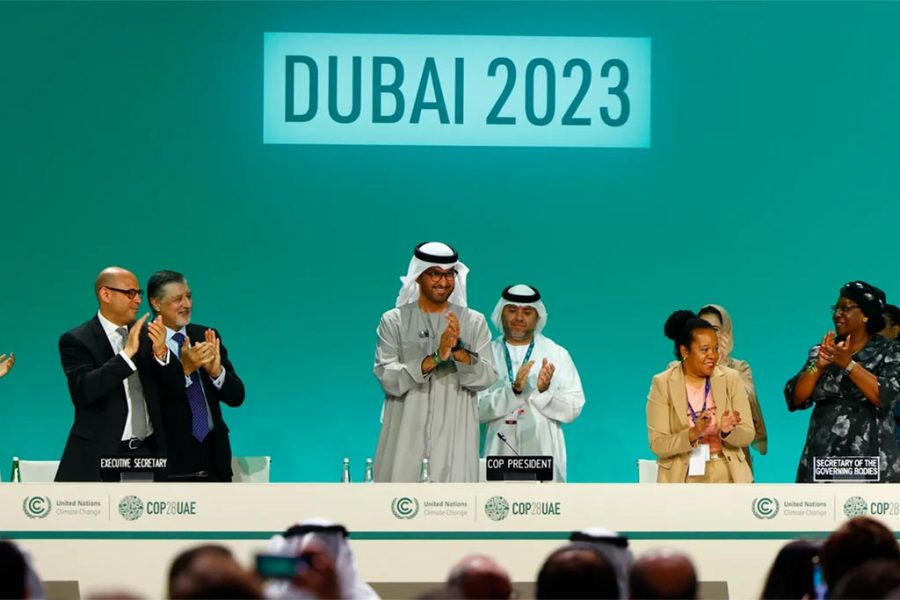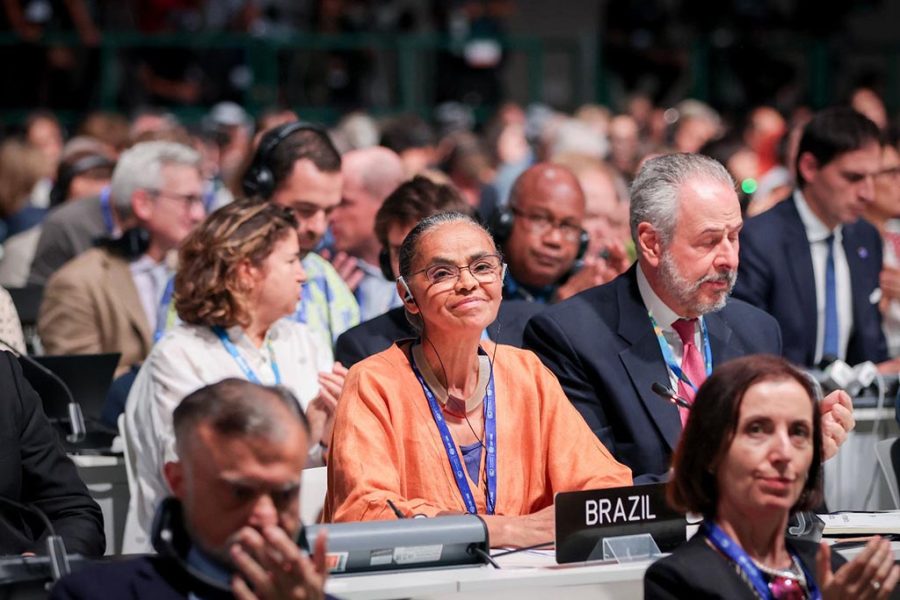The United Nations Climate Change Conference (COP28) concluded with an agreement signalling what’s described as the “beginning of the end” of the fossil fuel era, establishing the foundation for a swift and equitable transition, supported by substantial reductions in harmful emissions.
Representatives from nearly 200 countries agreed at the Summit to commence the reduction of global fossil fuel consumption to avert the worst of climate change, marking the definitive end of the oil age.

The agreement reached in Dubai after two weeks of intense negotiations is intended to send a strong message to investors and policymakers that the world is united in its desire to break away from fossil fuels.
COP28 President Sultan Al-Jaber called the agreement historic, but added that its true success will lie in its implementation:
“We are what we do, not what we say. We must take the necessary steps to turn this agreement into tangible actions.”

The agreement emerged as an effort to achieve the goal of global net-zero emissions by 2050, with some governments already crafting policies for a transition to a greener economy.
The agreement urges governments to accelerate this – especially by tripling the capacity of renewable energy globally by 2030, hastening efforts to reduce coal usage, and accelerating decarbonisation technologies.
Photo: cop28.com